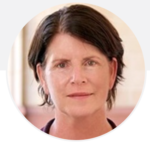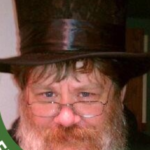 As a professor, I’m fortunate to teach a course called World Religions for Healthcare Professionals that prepares students for the spiritual and ethical issues they may encounter in their careers. But the class often boils down to life’s big questions: What makes life worth living, and how should we live? How do you find your “calling”? Continue reading
As a professor, I’m fortunate to teach a course called World Religions for Healthcare Professionals that prepares students for the spiritual and ethical issues they may encounter in their careers. But the class often boils down to life’s big questions: What makes life worth living, and how should we live? How do you find your “calling”? Continue reading
Category Archives: FutureOfWork@Risk – Greg Hutchins
#430 – CULTURE WARS – GREG HUTCHINS PE CERM
Featured
 Strength lies in differences, not in similarities.
Strength lies in differences, not in similarities.
Stephen Covey – Writer
Culture and guiding principles are important to VUCANs who work at LinkedIn, Apple, Google, and Nike because they communicate pride and enthusiasm with memorable tag lines. For example, Linkedin’s vision statement is to ‘Create economic opportunity for every member of the global workforce’. Mission statements convey to employees their companies’ caring and excellence. Continue reading
#429 – DO YOU KNOW YOUR WORK RULES? – GREG HUTCHINS PE CERM
Featured
 Eight in ten in the U.S. are experiencing disruption.
Eight in ten in the U.S. are experiencing disruption.
Gallup
In Working it: Disruption Rules, we describe Future of Work (FOW) in terms of paradigm shifts or changing work 1. Rules; 2. Boundary conditions; 3. Tools; and 4. Expectations. Continue reading
#428 – WHAT ARE HOLLYWOOD ACTORS AND WRITERS REALLY AFRAID OF? – HOLLY WILLIS
Featured
 The bitter conflict between actors, writers and other creative professionals and the major movie and TV studios represents a flashpoint in the radical transformation roiling the entertainment industry. The ongoing strikes by the Writers Guild of America and the Screen Actors Guild were sparked in part by artificial intelligence and its use in the movie industry. Continue reading
The bitter conflict between actors, writers and other creative professionals and the major movie and TV studios represents a flashpoint in the radical transformation roiling the entertainment industry. The ongoing strikes by the Writers Guild of America and the Screen Actors Guild were sparked in part by artificial intelligence and its use in the movie industry. Continue reading
#428 – LOOKING FOR WORK IN THE POST-AI WORLD – KURT CAGLE
Featured
 This article is in two parts. The first is simple – I am seeking consulting work, preferably remote, but I’m okay exploring hybrid solutions. Most of the work I’ve done in the last year has been advisory in nature, helping companies to develop new AI/LLM strategies, architect knowledge graphs, XML and XSLT, RDF/SPARQL/SHACL ontologies and taxonomies, data catalogs, and GraphQL data portals, as well as making recommendations about data risk management, metadata governance, standards development and editing, and semantic content management. You could call me a data therapist. Continue reading
This article is in two parts. The first is simple – I am seeking consulting work, preferably remote, but I’m okay exploring hybrid solutions. Most of the work I’ve done in the last year has been advisory in nature, helping companies to develop new AI/LLM strategies, architect knowledge graphs, XML and XSLT, RDF/SPARQL/SHACL ontologies and taxonomies, data catalogs, and GraphQL data portals, as well as making recommendations about data risk management, metadata governance, standards development and editing, and semantic content management. You could call me a data therapist. Continue reading